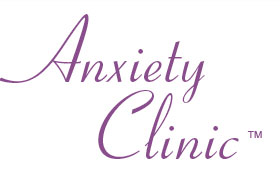Body Dysmorphic Disorder Test
BDD Test - Find Out If You Have BDD
Our Body Dysmorphic Disorder test is very simple. BDD is easy to diagnose as the symptoms are obvious to the BDD sufferer. However, remember that a diagnosis is merely a label and isn't going to fix or change your body dysmorphic disorder. BDD will persist (and escalate) until you take action to recover from it.
You'll find valuable original information on the BDD Page with respect to how body dysmorphic disorder works, where the obsessive thoughts come from, understanding the compulsive behaviours, understanding how the BDD obsessive compulsive cycle self-perpetuates, learning how you create your emotional states and perhaps most importantly - how to recover from BDD.
You'll find the Body Dysmorphic Disorder Test below...
The Body Dysmorphic Disorder Test
Here's the test. Simply count the number of yes answers and we'll give you our feedback on your score at the end of the test.
- Do you worry about your appearance?
- Is there a specific part of your body that you're unhappy with?
- Does thinking about a specific part of your body generate feelings of anxiety, distress or dissatisfaction?
- Do your thoughts seem to dwell on a specific part of your body?
- Do you find you run through unpleasant scenarios with respect to a specific part of your body?
- Do you worry about other people seeing (or finding out about) a specific part of your body?
- Do you worry about people noticing and talking about a specific part of your body behind your back?
- Do you use your hands or posture to conceal a certain part of your body from others?
- Do you use clothing or makeup to conceal a certain part of your body from others?
- Do you avoid social gatherings because you feel uncomfortable with the way you look?
- When out in public do you feel self conscious about how you look?
- Do you compare a specific part of your body with those of others?
- Do you still feel dissatisfied, no matter how much you try to conceal a certain part of your body?
- Does the specific part of your body interfere with relationships?
- Do you live with an underlying sense of tension and anxiety?
- Do you regularly check your appearance in mirrors and other reflective surfaces?
- Do you regularly touch, prod or pick at the specific body part?
- Do you consider some sort of cosmetic surgery to be necessary in remedying your specific body part?
- Do you avoid or dislike having your photograph taken?
- Do you consider yourself depressed, or could you become depressed in the future as a result of the specific body part?
There are twenty questions in the body dysmorphic disorder test. We'll give you feedback on your score in the next section.
Body Dysmorphic Disorder Test Results

If you scored 3 or less. Congratulations, you're fine. You just have some minor insecurities which is perfectly normal. Stop wasting your time worrying and get out there and live your life.
If you scored 4 - 8, then you almost certainly have some self perception and/or social issues. Social Anxiety Disorder isn't a million miles from Body Dysmorphic Disorder so it may be a good idea to read up on that area. However, in all honesty it's unlikely you have Body Dysmorphic Disorder.
If you scored 9 - 14, you almost certainly have Body Dysmorphic Disorder. You need to take action before it get's really out of hand. BDD does not go away on its own and will intensify with time. If you were to take the same test six months from now you'd probably score in the 15-20 range. It's entirely up to you... but BDD always runs in a downward spiral!
If you scored 15 - 20, you already have a severe case of body dysmorphic disorder. You're almost certainly already trapped in obsessive thought patterns and your behaviours have become compulsive. You of all people need to take stock of your options.
What Are Your Options?

You have four potential options:
The first option is to do nothing and hope the body dysmorphic disorder goes away on its own. Unfortunately, in reality this isn't going to happen. BDD is self feeding and self-perpetuating and will only grow and become more powerful if left to its own devices.
The second option is medication. This will 'dope you' and may help you to feel better temporarily. Anti-anxiety and anti-depressant medication are suppressants and NEVER fix disorders such as BDD. They are merely temporarily sweeping the symptoms under the carpet whilst the BDD cycle continues to get stronger in the background. Inevitably you are either going to become immune to the drugs or have to come off them... and that's when BDD will hit you harder than ever!
The third option is surgery. We know for a fact that this wont solve your BDD problem because many of our BDD clients have already undergone surgery before they came to us for help. They too firmly believed if they went under the knife everything would be fine and they'd feel good about themselves... but in reality it doesn't work that way. We don't mind if you go ahead and have surgery, but we feel a sense of responsibility to give you the facts up front and to try and save you the time, hassle, risk and pain surgery inevitably entails. It's up to you...
The fourth (and only real) option is to get specialised help. If you're serious about understanding your disorder and would like more specific information about body dysmorphic disorder you'll find it on our BDD Page. However if you've already decided that enough is enough and you're ready to recover, choose from the following links:
I'd like more information on Face To Face Consultations at the Clinic in Staffordshire
I can't get to Staffordshire - Nationwide Online Consultations would be better for me




